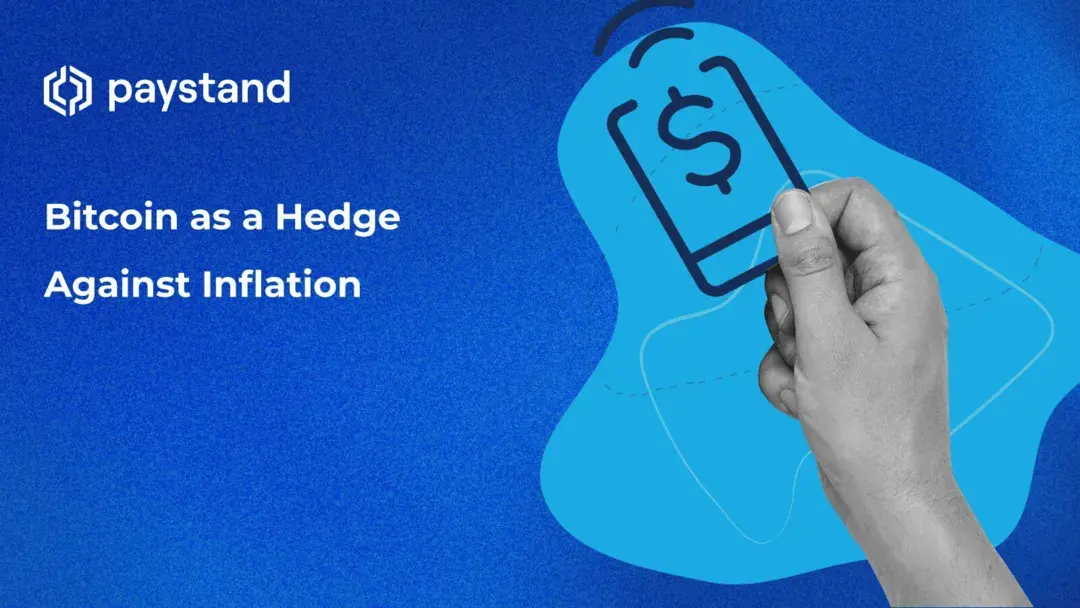Bitcoin Inflation Hedge: Can Bitcoin Protect Against Inflation?

Table of Contents
- Is Bitcoin Really a Hedge Against Inflation?
- What Is the #1 Hedge Against Inflation?
- Is Bitcoin Causing Inflation?
- Is Bitcoin an Inflation Hedge but Not a Safe Haven?
- How Bitcoin Was Designed to Hedge Inflation
- Why Institutional Investors Affect Bitcoin's Behavior
Key Takeaways
- Bitcoin’s deflationary design, including its fixed supply and halving events, positions it as a potential hedge against inflation.
- Over the long term, Bitcoin has shown resilience and growth, reinforcing its status as a store of value.
- Institutional influence and short-term market volatility can impact Bitcoin's performance but don’t diminish its long-term potential.
- Bitcoin offers a digital alternative to traditional inflation hedges like gold, with unique advantages such as decentralization and global accessibility.
When Bitcoin was introduced in 2009 by its pseudonymous creator, Satoshi Nakamoto, it was heralded as a revolutionary digital currency designed to disrupt traditional financial systems. Over the years, Bitcoin has evolved from a niche asset to a globally recognized form of digital gold.
In recent years, Bitcoin has faced significant volatility, influenced by institutional adoption, regulatory developments, and global economic shifts. Yet, its core principles—decentralization and scarcity—remain intact. As inflation continues eroding traditional currencies' purchasing power, many are looking to Bitcoin as a hedge against this economic reality.
In this blog, we’ll explore Bitcoin’s role as an inflation hedge, address common misconceptions, and uncover how its unique properties make it a standout asset in today’s financial landscape.
Is Bitcoin Really a Hedge Against Inflation?
Bitcoin was designed with a fixed supply of 21 million coins and deflationary mechanisms like halving events, making it resistant to inflationary pressures. Unlike fiat currencies, which can be devalued through excessive money printing, Bitcoin maintains scarcity.
While short-term volatility may create doubts about its role, historical trends demonstrate Bitcoin’s potential as a long-term store of value. Many investors turn to Bitcoin during inflationary periods for its unique properties as “digital gold.”
What Is the #1 Hedge Against Inflation?
Historically, gold has been considered the ultimate hedge against inflation due to its intrinsic value and stability. Other traditional options include:
- Real Estate: Tangible assets that appreciate over time
- Commodities: Items like oil and agricultural products
Bitcoin, often called “digital gold,” is emerging as a modern alternative. Its fixed supply, decentralization, and deflationary mechanisms make it uniquely suited to protect against inflation, especially in an increasingly digital economy.
Is Bitcoin Causing Inflation?
No, Bitcoin does not cause inflation. Its finite supply and predictable issuance schedule mean it operates outside traditional inflationary systems. Unlike fiat currencies, Bitcoin cannot be devalued through excessive issuance or policy decisions.
In fact, Bitcoin is a deflationary asset, meaning its value tends to increase over time as supply diminishes. This design inherently resists the factors that drive inflation in traditional financial systems.
Is Bitcoin an Inflation Hedge but Not a Safe Haven?
Due to its scarcity and decentralized nature, Bitcoin serves as an inflation hedge. However, because of its price volatility, it is not always considered a “safe haven” asset like gold or government bonds.
Over the long term, Bitcoin has shown significant resilience and growth, making it an attractive option for investors seeking protection against inflation. Its ability to serve as both a hedge and a potential high-return asset sets it apart from traditional safe havens.
How Bitcoin Was Designed to Hedge Inflation
Bitcoin’s creator, Satoshi Nakamoto, embedded key features to ensure its resistance to inflation:
- Capped Supply: Only 21 million Bitcoins will ever exist, creating digital scarcity
- Halving Events: Every four years, the rate of new Bitcoin issuance is halved, further reducing supply growth
- Deflationary Mechanism: These elements mimic gold’s properties, making Bitcoin an appealing store of value
Over the past decade, Bitcoin’s design has proven effective in maintaining its value and serving as a hedge against the devaluation of fiat currencies.
Why Institutional Investors Affect Bitcoin's Behavior
Institutional investors play a significant role in Bitcoin's price movements, particularly in the short term:
- Market Liquidity: Their involvement increases trading activity, creating both stability and volatility
- Risk Perception: Some institutions treat Bitcoin as a speculative asset, leading to sell-offs during uncertain times.
While this dynamic may affect Bitcoin’s short-term performance, it does not undermine its long-term potential as a hedge against inflation and a store of value.
Bitcoin’s unique design positions it as a strong contender in the fight against inflation. With its finite supply, deflationary mechanisms, and growing adoption, Bitcoin offers an innovative and accessible alternative to traditional inflation hedges like gold.
Despite short-term fluctuations influenced by institutional activity, Bitcoin’s long-term trajectory reinforces its potential as a store of value and a safeguard against the erosion of purchasing power.
By understanding Bitcoin’s role in the broader financial ecosystem, investors can make informed decisions and embrace its potential as a cornerstone of a diversified portfolio in an increasingly digital world.






%20(1)%20(1).jpg?width=100&height=100&name=IMG_3752%20(1)%20(1)%20(1).jpg)